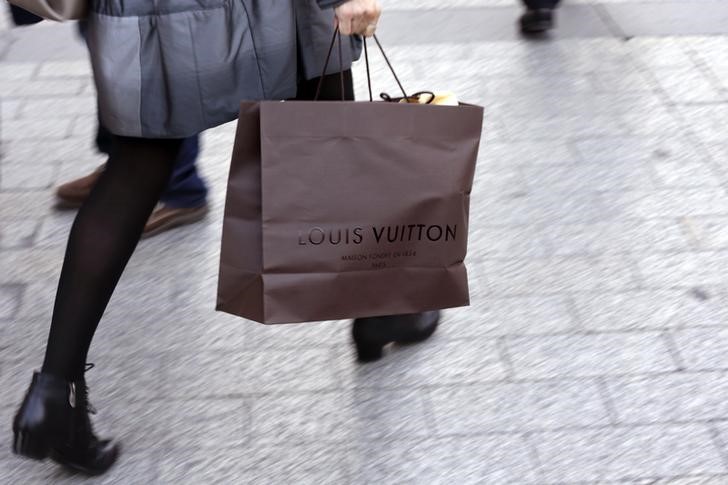By Geoffrey Smith
Investing.com -- Europe's big luxury stocks weakened on Monday on concerns that the wave of political protests in China could hit sales in one of their most important markets.
By 05:35 ET (10:35 GMT), industry leader LVMH's (EPA:LVMH) stock was down 0.6%, while Kering (EPA:PRTP) stock was down 0.4%, Dior (EPA:DIOR) stock was down 0.8% and Moncler (BIT:MONC) stock was down 0.8%.
The sector is one of the most exposed to potential upheaval in China, although the impact of the protests on stock prices has been softened by the fact that sales there have been relatively sluggish all year due to the COVID-19 restrictions and a stop-start campaign for wealth redistribution by the Communist Party government.
LVMH’s sales in Asia-Pacific - a region that also includes less COVID-affected markets such as India, Singapore and Indonesia - have risen only 2% on the year in the first nine months, and contracted in the second quarter before returning to growth of 6% in the third quarter. By contrast, LVMH's European sales were up 43% over the first nine months, while those in the U.S. were up 19%.
Sales at Gucci owner Kering followed a similar pattern, up 73% in the third quarter in Europe, but up only 7% in Asia-Pacific. Kering had noted that Chinese sales were "still under pressure" when it reported in October.
Developments this year, when China has been the only major market still implementing controls on the opening of physical stores, have represented a striking turnaround from the last 15 years, when growth in Greater China was the driving force for sales across the sector.
China was shaken at the weekend by the biggest anti-government protests since 1989, as people from Shanghai to Urumqi and Wuhan took to the streets to demand the lifting of COVID-related lockdown measures. While some protests last week had spilled over into violence, those at the weekend remained largely peaceful, despite widespread reports of heavy-handed police action to disperse them.
The protests were triggered by a fire in Urumqi, the capital of the western province of Xinjiang, where lockdown restrictions hampered the evacuation of residents and contributed to over 10 deaths, according to various reports. The broader background is widespread unhappiness at the authorities backtracking in the last two weeks on a recent pledge to loosen restrictions, after a sharp rise in COVID-19 cases in major population centers.
Coverage of the soccer World Cup in Qatar, with images of tens of thousands of people gathered together without masks, has reportedly heightened the sense of exasperation amid parts of the population.
"If protests do recur, it will add uncertainty about domestic economic growth, which is already weaker as a result of precautionary savings," said Paul Donovan, chief economist with UBS Global Wealth Management, in a morning briefing.
He noted that it is not yet clear whether the government will respond by cracking down on the protests to save face, thus adding to the risks around domestic consumption, or to revive its plans to relax the restrictions, in order to forestall further protests.
